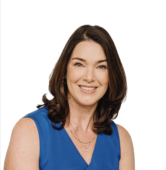Addictions therapists in Motherwell, Scotland Scotland, United Kingdom GB
We are proud to feature top rated Addictions therapists in Motherwell, Scotland, United Kingdom. We encourage you to review each profile to find your best match.
Sara Aicart-Pendlebury
Art Therapist, Human Givens Practitioner (HG.Dip.P), Member of Human Givens Institute, IFS therapist Levels 1&2, Narm Practitioner
You may choose to call it a craving, a fancy, a bit of a dependence but the truth is that anyone who becomes overly drawn to or obsessed by any activity – whether drinking alcohol, taking drugs, over- or under-eating, shopping, gambling, sex or even doing good deeds – is trying to fill a void or block out something that is missing in their lives. (Even smoking may start for that reason.) That’s why the human givens approach, which focuses on helping people in distress find healthy ways to meet their emotional needs, is such a successful method for overcoming addictions.
We know, from research, that people who feel fulfilled in their lives do not need (or stop needing) to indulge in addictive activities. In one famous experiment, rats were offered either morphine-laced water or ordinary water. When rats were kept alone in small cages, they tended to opt for the morphine, but when they were kept in groups in areas similar to their natural habitats, they preferred to drink the water. When the rats in the natural habitat were then put singly into cages, they started choosing the morphine-laced water, while the rats originally in the cages stopped choosing the morphine when put into natural-style habitats. This showed clearly that, when needs were met, rats did not want drugs. The same effect is found in humans. Most young people give up drug experimentation when they start careers and families.
People are much more likely to get caught up in addiction when important needs cease to be met, perhaps because of loss, caused by the death of someone close, a relationship ending, redundancy or illness, or by dissatisfaction arising from boredom or feeling trapped. Sometimes such circumstances lead first to depression and then to addiction.
It is now known that all addictive behaviours work through the same common pathway in the brain – the expectation pathway. So, when human givens practitioners help someone to overcome an addictive activity, they focus first on helping people knock out the expectations of pleasure that addiction falsely feeds us. If you have ever tried to stop an activity you are rather over-partial to, you may recall that, when you first decide not to have that drink or that cigarette or switch on the shopping channel, you don’t feel any great discomfort. It is as time goes on that the craving grows, often until it is irresistible.
What happens in the brain is this: when we first decide not to indulge in the activity, we feel calm; however, there is a structure in the emotional brain, called the amygdala, whose job it is to notice when anything out of the ordinary is happening and raise the alarm if it could mean danger. On this occasion, it notices that we haven’t had our usual cigarette, drink, shopping-channel fix. A sequence of chemical events takes place in the brain, which results in our being flooded with arousing emotional memories of how wonderful it was to smoke, drink, order goods when watching the shopping channel – and so we succumb.
Once strong desire is experienced, we recall only expectations of pleasure associated with the addictive activity. This makes our craving powerful, even overwhelming, instead of the very mild physiological discomfort we experienced at the start. But the memories are usually false because, as we know, when we feel we are being deprived of something we want, we exaggerate the joys of it. So we remember being the life and soul of the party and not being sick and having a hangover; we remember the thrill of buying new clothing and not the self-loathing while stuffing it, still in its glossy packaging, at the back of the wardrobe. In other words, the satisfaction is all in our heads.
Human givens practitioners help people change their expectations by relaxing them and then guiding them to visualise the downsides of the addictive activity – such as disabling illness, loss of loved ones, financial hardship, etc, instead of the false memories of fulfilment. When only these more realistic associations come to mind on experiencing a craving, withdrawal symptoms remain mild physiological ones, such as the sensation of gentle butterflies in the stomach or a furry tongue. After a while, if all false memories are rejected and only the fearsome ones are accessed from our emotional memory stores, craving ceases altogether.
People then need to be helped to find ways to meet their needs more healthily again, such as by starting or resuming social activities (most people with addictive behaviours gradually give less and less time to what they previously valued); facing whatever may have led to the addiction in the first place, such as a troubled marriage or work difficulties, and finding solutions; and learning ways to deal with future stress – or temptation – without relapsing. This will usually involve changing attitudes towards problems or setbacks, learning to see them as challenges that can be coped with; learning to calm aroused emotions down instantly; and being ready to take ‘emergency action’ to distract oneself from temptation, such as going for a walk or calling a friend.
When people genuinely realise that they have been hoodwinked into false expectations of pleasure and fulfilment from an addictive activity, they find that they can stop, and not miss it, however long they have been in its thrall.
15 Years Experience
Online in Motherwell, Scotland
Louise Perry
Therapist, IFS UKCP HCCP BAAT
With 24 years of recovery from addiction—including drugs, alcohol, and sex and love addiction—I bring a deep, personal understanding of what it means to navigate the challenges of healing and growth. My own journey has been profoundly shaped by the 12-step approach, and this experience underpins the empathy and authenticity I bring to my work as a psychotherapist.
I understand what it’s like to face inner struggles, to confront difficult truths, and to find resilience in the process of recovery. These experiences not only inform my professional practice but also inspire my unwavering commitment to supporting others. Whether you’re grappling with addiction, exploring relationships, or seeking clarity about yourself, I aim to offer a safe, compassionate space for your journey.
I combine this lived experience with my professional training in Integrative Art Psychotherapy and Internal Family Systems (IFS) to help clients explore, express, and overcome life’s challenges. Warm-hearted, unshockable, and trustworthy, I am here to walk alongside you as you uncover new possibilities for growth and self-discovery.
6 Years Experience
Online in Motherwell, Scotland
Jayne Batten
Counsellor/Therapist, MSc, CT, RPC, MPCC
Addictions are behaviours in which we engage to enable us to cope with deep emotional pain, usually stemming from some form of trauma in our lives. Social and environmental factors can also play a role in developing addictions. Addictions include the use of alcohol, drugs, sex, pornography, gambling, smoking, shopping, etc. as a way to provide temporary relief from the painful thoughts and negative feelings that arise within us. Over time addictions establish themselves as the go-to relief to cope with our emotions, but at the same time render us less functional. Our relationships, work, and homelife begin to suffer from the consequences of the addiction. Talking therapy can help to uncover and resolve the pain that lies beneath addiction and over time help us to reconnect with our inner selves and to discover and develop behavioural responses to replace the addictive behaviour.
6 Years Experience
Online in Motherwell, Scotland
Janine & ComposurePsychology Team
Psychologist, Chartered Clinical Psychologist, HCPC & BPS registered, DClinPsy, CSAccred.(AAC), MPhil (cantab)
One of our senior Clinical Psychologists at ComposurePsychology has an interest in and many years experience in helping people with addiction.
11 Years Experience
Online in Motherwell, Scotland
Gaye Mallinson - Somatic Psychotherapies
Counsellor/Therapist, B.Soc.Ser. (Couns), Dip. Couns, Trauma Informed Yoga Cert, Pranayama Cert, Nidra Cert
I work primarily from a Rogerian or Person-Centred Therapy (PCT) approach using a conversational style listening patiently to you, always with empathy, genuineness and without judgement, to help find the solutions you desire for your life whilst adjusting my techniques to fit your needs within each session.
My focus is in supporting harm minimisation strategies that can feel practical for your circumstances. I understand that abstinence is not always the goal for every individual and this is not a focus unless you desire this particular goal. I can also utilise various assessments to measure the severity of a specific problem, as well as determining your progress within therapy. I can provide a copy of these for your doctor or other treatment provider to assist you further where requested.
My aim is to then assist you with your life difficulties to restore balance, happiness and inner peace with various techniques of 'talk therapy' and somatic (mind/body) healing methods, along with offering practical strategies that may be useful where suitable and desired by you. Whatever you are going through, know that there is hope - Let me help you find that hope.
9 Years Experience
Online in Motherwell, Scotland (Online Only)




